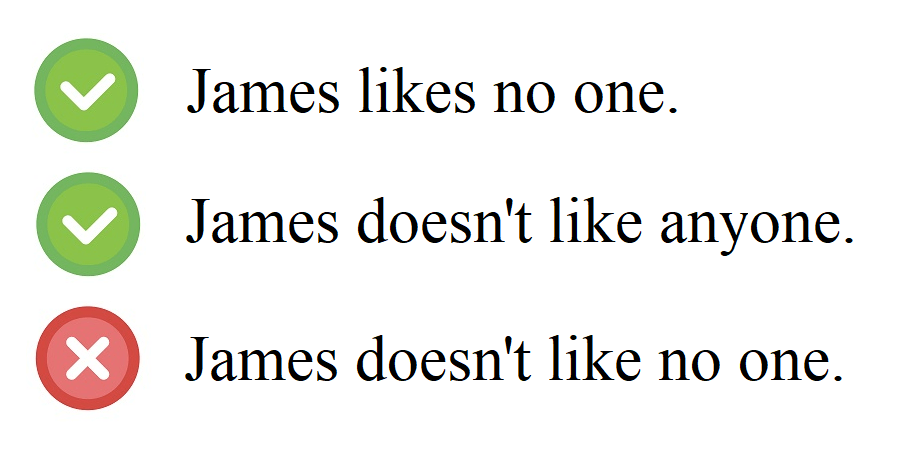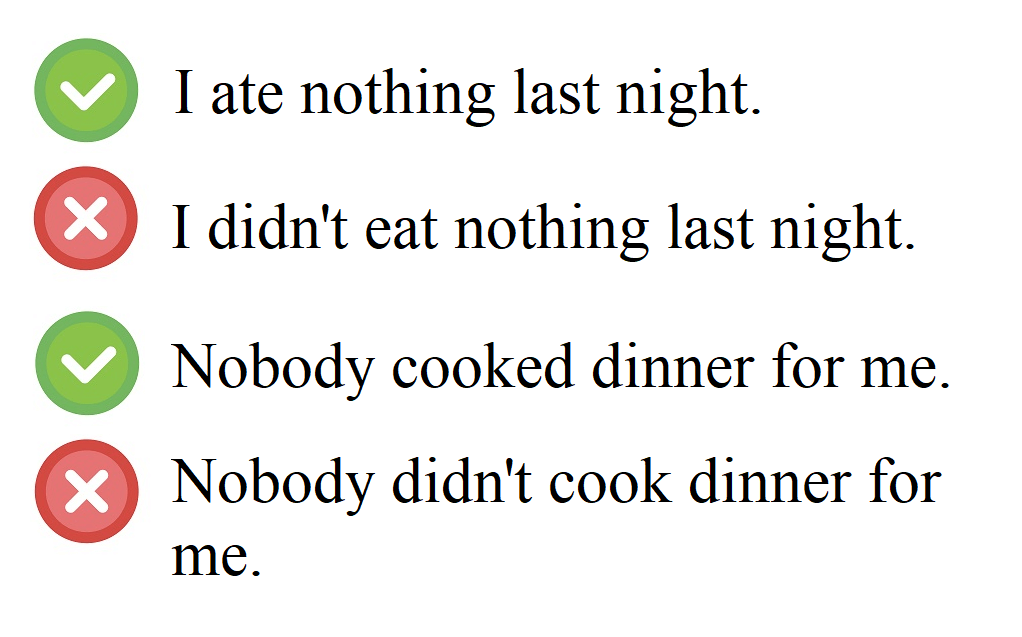Indefinite Pronouns with "Every-" and "No-"
- Indefinite pronouns with "every-" refer to all members of a group individually.
- "No-" pronouns indicate a lack of anything or anyone in a group.
- "No one" is unique as it is always written as two words to signify the absence of any person.
Understanding the indefinite pronouns with "every-" and "no-" is crucial for effectively communicating completeness or absence in English. This lesson explores these pronouns.
What Are "Every-" Pronouns?
Indefinite pronouns with "every-" include "everyone," "everything," "everywhere," and "everybody." These pronouns are used to refer to all members of a group individually.
"Everyone" and "everybody" indicate every person in a group.
"Everything" indicates every object in a group.
Note that we use the third person singular verb when the subject is an indefinite pronoun with "every". Also, note that we use "every-" pronoun in a positive sentence, NOT in a negative sentence. In a negative sentence, we use "any-" indefinite pronoun.
Examples:
-
Everyone is watching the movie tonight.
This is a positive sentence with "Everyone" as the subject. Note, the be verb is "is", not "are".
-
I love everything in this little store.
"Everything" is the indefinite pronoun.
Understanding "No-" Pronouns
Indefinite pronouns with "no-" include "nobody," "nothing," "nowhere," and the unique "no one." These pronouns express a complete absence of people, things, or places.
We use these indefinite pronouns in a positive sentence, NOT in a negative sentence.
For example, we don't say "I don't like nobody". We just say, "I like nobody.Note, "no one" is always written as two words.


Examples:
-
Nobody knows the answer.
"Nobody" is the indefinite pronoun. This sentence means "not 1 person knows the answer."
-
There is no one here.
"No one" is used as two words to indicate the absence of any person.
Practice this topic with the AI English Tutor
AI English Tutor will teach you the grammar and practice it with you in a conversation format. Plus, 100+ practice questions on this topic to cement your understanding.
Try ALULA for free on your phone or tablet








Do you have any questions about this lesson? Ask in the comment section, below.